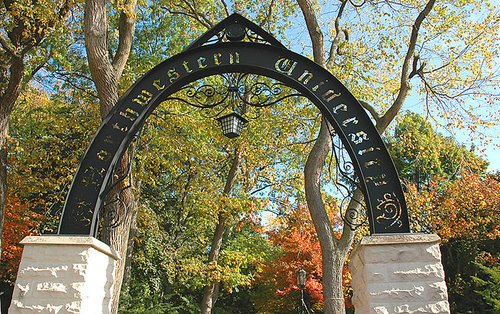A Reflection on Death, Privilege, and The College Experience
 When I committed to Northwestern in the spring of my senior year of high school, I imagined a multitude of joys and wonders. I wanted to make the most of my four years at college; I wanted to make dozens of amazing friends, I wanted to cherish every single piece of knowledge I could, and I wanted to find a higher sense of purpose and calling in my life.
The untimely death of my peers was not something I had included in this idealized perception of my time here.
When I committed to Northwestern in the spring of my senior year of high school, I imagined a multitude of joys and wonders. I wanted to make the most of my four years at college; I wanted to make dozens of amazing friends, I wanted to cherish every single piece of knowledge I could, and I wanted to find a higher sense of purpose and calling in my life.
The untimely death of my peers was not something I had included in this idealized perception of my time here.
Surely, at Northwestern - the academic utopia for which I had always yearned - my studies would not be interrupted by e-mails lamenting the death of a fellow Wildcat. Surely, at Northwestern - the land of milk and honey, as I envisioned it - I would not be forced to endure the emotional trauma of knowing that people I see every day are struggling so much that they simply could no longer bear it. Surely, at Northwestern no one would be so compelled to end their own lives.
And yet, here I am, speechless as yet another classmate is gone, troubled to realize that I consider myself "fortunate" to only have been well-acquainted with one of three students who has died this year.
I didn't know Dmitri Teplov. I may very well have graduated without ever meeting or even interacting with him. I may have met someone in ten years who would ask me if I knew him in college, and I would tell them the name didn't even ring a bell. But now this name connotes the perturbing reality that the community around this vaunted institution can be toxic. Dmitri Teplov serves as a reminder that among all our joys and contentments here, there are others who fight daily battles to keep themselves alive.
As I've grappled with this tragedy, trying to make sense of something that I find infinitely perplexing, it has occurred to me that the meaning of this incident may ultimately boil down to that elusive buzzword that defines so much controversy and rhetoric at this university: privilege. Not the economic or racial privilege that has created seemingly irreconcilable rifts among segments of our own student body, but a privilege that often fails to be seen for what it is. It is the privilege - and the blessing - of mental health.
We don't tend to think of mental health as a privilege. Those who haven't experienced issues surrounding mental health would probably see it as a given, and those who have struggled with it would probably see it as an evasive pipe dream. Much like social privilege, it can often be difficult to detect without some catalyzing event. Disparities in social privilege have been thrown into the limelight by a series of racial incidents over the course of the last several years, and accordingly, disparities in mental health privilege should be made more than evident by the suicides that have brought detriment to our community this year.
In writing these words and thinking these thoughts, I do not believe that a "call to action" here ends in throwing more money toward psychological services. As much as I believe that funding of psychological services at this university should be increased, I would hesitate to claim that another few thousand dollars would have stopped Alyssa Weaver and potentially Dmitri Teplov from committing suicide. Rather, I encourage everyone reading this article to think carefully about the state of those without the privilege of stable mental health. We should seek to sympathize with members of our community instead of ignoring them for the sake of convenience. If we have the tremendous power to come together in grievance of a lost classmate, then there's absolutely no reason we shouldn't be able to show the same love and solidarity for that classmate before they give up on our community.
Almost all of us came to Northwestern with a spring in our step and a wealth of hopes and expectations about the next four years of our lives. Somewhere along the way, some springing steps slowed to afflicted trudges, and some hopes and expectations dissolved into disappointment and misery. As members of the same community - a community with so many shared characteristics - it is our responsibility to ensure that none of our own be left behind or discouraged. If we can build a stronger community around support and sympathy, then perhaps someday students of this excellent institution won't have to consider tragedy to be a recurrent manifestation of their experience here.





